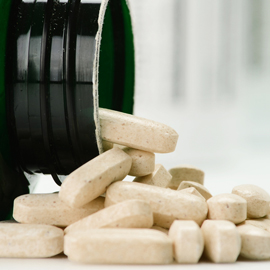 Gastroesophageal reflux disease or GERD is one condition that is highly associated with food. High fat foods, acidic foods, too much food—all of these things can lead to an attack of indigestion and heartburn for residents of Albany and Macon. With all the rules around foods you cannot have, those struggling to overcome heartburn and indigestion often overlook the dietary solutions that can help alleviate discomfort.
Gastroesophageal reflux disease or GERD is one condition that is highly associated with food. High fat foods, acidic foods, too much food—all of these things can lead to an attack of indigestion and heartburn for residents of Albany and Macon. With all the rules around foods you cannot have, those struggling to overcome heartburn and indigestion often overlook the dietary solutions that can help alleviate discomfort.
While there are a number of foods that reduce your risk of experiencing acid reflux, it is hard to limit your diet to such a small number of items. When hunger strikes it isn’t always possible to find a piece of grilled chicken with no added spices or oils. But if you struggle with GERD then straying too far from your diet plan could lead to an evening of severe discomfort.
The only way to completely overcome GERD is surgery to repair the damaged lower esophageal sphincter, or the valve that separates the stomach from the esophagus. However, while you are awaiting surgery there are several additional solutions that you can try to alleviate your heartburn.
Here are a few natural dietary supplements that can help keep your heartburn at bay:
- Natural vegetable juices: Carrot juice, cabbage juice and even aloe vera juice are all known to reduce acid reflux. You can find most of these juices at your local food store but remember to look for additives as spices are often used to give the vegetable juice more flavor. Try drinking about one cup a day for optimal relief. Remember that tomato is considered a fruit by scientists and has a fairly acidic juice.
- Deglycyrrhizinated licorice or DGL: No, this isn’t a type of candy. This is an herbal extract that can be taken with food up to twice daily. It helps reduce the pain of heartburn by promoting healing of the esophageal lining.
- L-glutamine powder: This is a type of amino acid that can be taken with water. This supplement is also recommended to help with ulcers.
- Mastic gum: Mastic gum is actually a form of sap that comes from a plant common in the Mediterranean called the Pistacia lentiscus. It has been used to help with digestive health for hundreds of years and is sold in health food stores in capsule form. Always take this with food.
Before you incorporate any of the above dietary supplements into your diet remember to first talk with your GERD specialist. Adding foods to your diet without consulting your physician could become dangerous, especially if you are receiving other forms of treatment for heartburn and acid reflux.
Have you tried any dietary supplements or added any specific foods to your diet that have helped calm your heartburn? Please share your thoughts and experiences in a comment below.

Leave a Reply